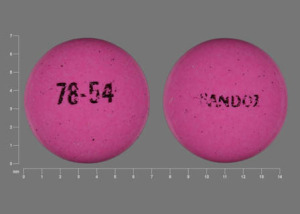Methergine Disease Interactions
There are 3 disease interactions with Methergine (methylergonovine).
Amine ergots (applies to Methergine) cardiovascular adverse effects
Major Potential Hazard, High plausibility. Applicable conditions: Arteriovenous Shunting, Cardiovascular Disease
The amine ergot alkaloids, ergonovine and methylergonovine, can cause serious cardiovascular complications because of their vasospastic effects. Hypertension (more often with ergonovine) has been most commonly reported, particularly when administered IV undiluted or at an excessive rate or when used in conjunction with regional anesthesia or vasoconstrictors. Headaches, seizures, cerebrovascular accidents and death have been associated with the hypertensive episodes. Other, less common adverse effects include acute myocardial infarction, transient chest pains, thrombophlebitis, tachycardia and palpitations. Therapy with ergot alkaloids should generally be avoided, except under special circumstances, in patients with chronic hypertension, preeclampsia or eclampsia, cardiovascular disease, cerebrovascular disease, or peripheral vascular disease. Caution is advised when these agents are administered to patients with venoatrial shunts, mitral valve stenosis, or sepsis. Close monitoring of cardiovascular status is highly recommended during therapy.
References
- American Medical Association, Division of Drugs and Toxicology "Drug evaluations annual 1994." Chicago, IL: American Medical Association; (1994):
- "Product Information. Ergotrate Maleate (ergonovine)." Bedford Laboratories PROD (2001):
- "Product Information. Methergine (methylergonovine)." Novartis Pharmaceuticals (2010):
Amine ergots (applies to Methergine) hypertension
Major Potential Hazard, High plausibility.
The use of the amine ergot alkaloids, ergonovine and methylergonovine, is considered by some clinicians to be contraindicated in patients with hypertension. These agents can cause hypertension, particularly when administered IV undiluted or at an excessive rate or when used in conjunction with regional anesthesia or vasoconstrictors. Headaches, seizures, cerebrovascular accidents and death have been associated with the hypertensive episodes. Patients with chronic hypertension or preeclampsia may be at increased risk for these complications. Of the two agents, methylergonovine has less tendency to cause hypertension, although preferably neither agent should be administered to at- risk patients.
References
- American Medical Association, Division of Drugs and Toxicology "Drug evaluations annual 1994." Chicago, IL: American Medical Association; (1994):
- "Product Information. Ergotrate Maleate (ergonovine)." Bedford Laboratories PROD (2001):
- "Product Information. Methergine (methylergonovine)." Novartis Pharmaceuticals (2010):
Amine ergots (applies to Methergine) renal/liver disease
Moderate Potential Hazard, Moderate plausibility. Applicable conditions: Renal Dysfunction
The amine ergot alkaloids, ergonovine and methylergonovine, appear to be eliminated by both renal and hepatic routes. Patients with renal and/or liver disease may be at greater risk for adverse effects from these agents due to decreased drug clearance. Caution is advised if these agents are used. Dosage adjustments may be necessary.
References
- "Product Information. Ergotrate Maleate (ergonovine)." Bedford Laboratories PROD (2001):
- "Product Information. Methergine (methylergonovine)." Novartis Pharmaceuticals (2010):
Methergine drug interactions
There are 256 drug interactions with Methergine (methylergonovine).
Methergine alcohol/food interactions
There are 3 alcohol/food interactions with Methergine (methylergonovine).
More about Methergine (methylergonovine)
- Methergine consumer information
- Check interactions
- Compare alternatives
- Pricing & coupons
- Reviews (8)
- Drug images
- Side effects
- Dosage information
- During pregnancy
- Generic availability
- Drug class: uterotonic agents
- Breastfeeding
- En español
Related treatment guides
Drug Interaction Classification
| Highly clinically significant. Avoid combinations; the risk of the interaction outweighs the benefit. | |
| Moderately clinically significant. Usually avoid combinations; use it only under special circumstances. | |
| Minimally clinically significant. Minimize risk; assess risk and consider an alternative drug, take steps to circumvent the interaction risk and/or institute a monitoring plan. | |
| No interaction information available. |
Further information
Always consult your healthcare provider to ensure the information displayed on this page applies to your personal circumstances.


